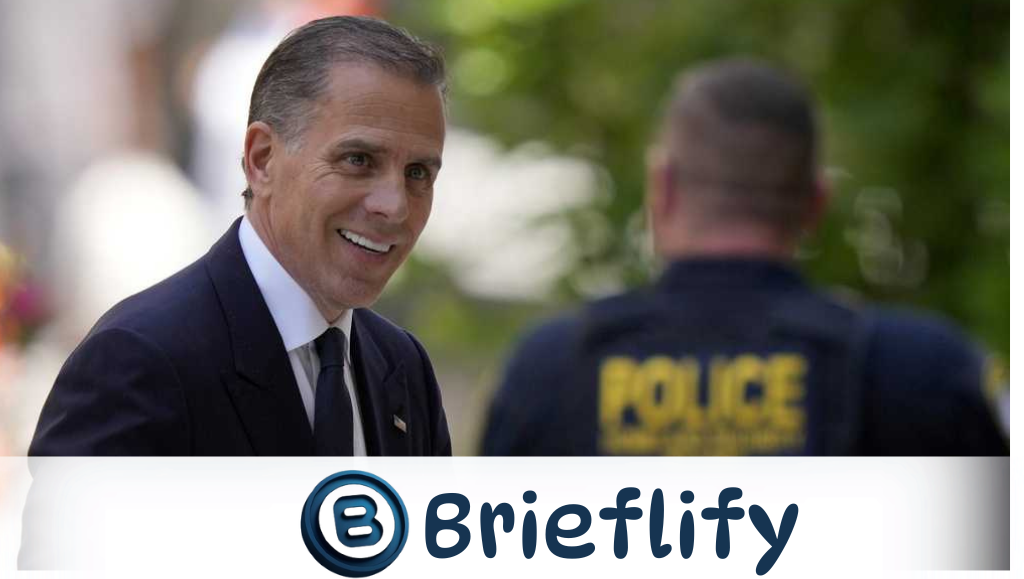
Hunter Biden, the son of President Joe Biden, has found himself at the center of legal and political controversy once again. This time, it’s over the purchase of a firearm in 2018, an action prosecutors allege involved false statements on a federal form and constitutes a serious violation of federal law. The trial has not only drawn significant media attention but has also become a focal point for partisan debate in an already polarized political landscape.
In 2018, Hunter Biden purchased a handgun from a Delaware firearms dealer. To do so, he completed ATF Form 4473, a standard requirement for firearm transactions in the United States. This form includes questions regarding the purchaser’s criminal history and substance use. Prosecutors argue that Biden falsely answered “no” to a question about unlawful drug use, despite being a known user of crack cocaine at the time, as later confirmed by his own memoir and various media reports.
Federal law prohibits anyone who is an unlawful user of, or addicted to, controlled substances from purchasing firearms. The indictment against Hunter Biden includes charges of making a false statement to a federally licensed firearms dealer, making a false statement on a federal firearms application, and possession of a firearm by a person who is an unlawful user of or addicted to a controlled substance.
During the trial, the prosecution presented evidence that Hunter Biden was indeed using drugs at the time of the purchase. This included excerpts from his autobiography, “Beautiful Things,” where Biden candidly discusses his struggles with addiction. The defense, however, has countered by emphasizing the challenges and complexity of addiction, arguing that Hunter Biden’s actions were not premeditated but rather the result of his impaired judgment during a period of severe substance abuse.
The prosecution’s argument hinges on the assertion that Hunter Biden knowingly provided false information to obtain a firearm, a clear violation of federal law. They argue that this case is straightforward: the law was broken when Biden lied on the form. By contrast, the defense is attempting to humanize Biden, portraying him as a man struggling with addiction who made a mistake rather than a criminal with malicious intent.
The trial has inevitably become a political lightning rod. Republicans have seized on the case to criticize President Biden and argue that his administration’s policies on gun control and crime are hypocritical. They contend that the President’s son flouted laws that the administration is otherwise keen to enforce.
On the other hand, Democrats have largely defended Hunter Biden, pointing to the highly personal and painful aspects of his addiction as a mitigating factor. Some have also suggested that the intense scrutiny on Hunter Biden is politically motivated, aimed at undermining President Biden’s credibility and distracting from other issues.
This case has broader implications beyond the immediate political fallout. It highlights the intersection of gun control laws and drug policy in the United States. Federal laws are stringent about prohibiting drug users from obtaining firearms, reflecting a concern about the potential for violence or accidents involving impaired individuals. Yet, the enforcement of these laws often intersects with the complex realities of addiction, raising questions about the effectiveness and fairness of such regulations.
Addiction experts argue that punitive measures against individuals struggling with substance abuse may not address the root causes of their behavior. Instead, they advocate for more comprehensive treatment and support systems to help individuals overcome addiction and reduce the likelihood of such incidents occurring in the first place.
The public and media reaction to Hunter Biden’s trial has been mixed. Some see it as a clear-cut case of someone breaking the law and needing to be held accountable, regardless of their personal struggles or political connections. Others view it as an overreach, a politicized attack on a vulnerable individual dealing with addiction.
Media coverage has varied widely, with conservative outlets emphasizing the alleged hypocrisy and illegality, while more liberal platforms focus on the human elements of Biden’s addiction and recovery journey. This dichotomy in coverage underscores the broader societal divisions over issues of gun control, drug policy, and political accountability.
The trial of Hunter Biden for his 2018 gun purchase is more than just a legal proceeding; it is a microcosm of the larger cultural and political battles in the United States today. It raises important questions about the enforcement of gun control laws, the treatment of individuals struggling with addiction, and the extent to which political motivations can influence legal processes.
As the trial progresses, it will undoubtedly continue to attract significant attention and provoke debate. Regardless of the outcome, it serves as a poignant reminder of the complexities and challenges at the intersection of personal responsibility, legal accountability, and political maneuvering.

